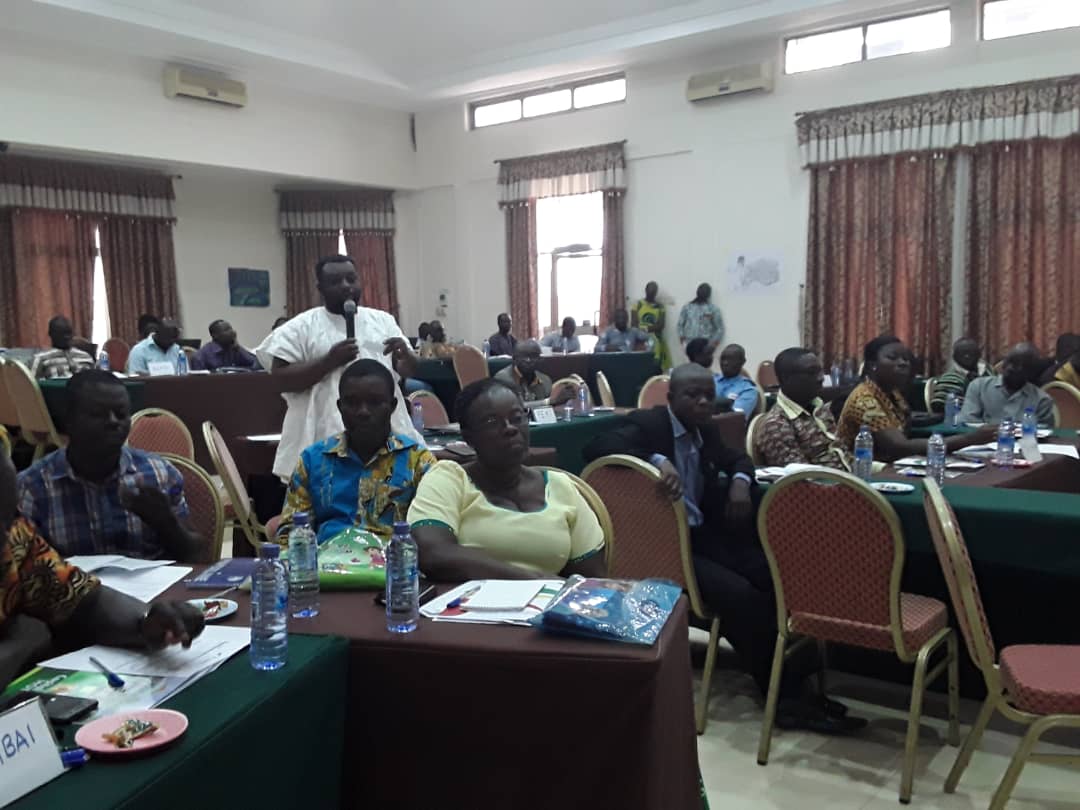
We are ready for roll out of degree programmes - Colleges of Education
Colleges of Education (CoEs) in the country say they are ready and well-positioned to begin the rollout of the degree programmes come the 2018/2019 academic year, which begins September 2018.
Representatives of five CoEs who spoke on behalf of the colleges, however, conceded that there were still some basic urgent needs that required immediate attention and appealed to the government to ensure that all the things that needed to be instituted before the rollout
Speaking at a media interaction during a two-day workshop
Colleges that attended
The workshop was attended by nine CoEs out of the 46 in the country, who benefited from the GHc2.5 million Challenge Fund from the T-TEL.
The colleges are the Peki CoE, the Presby CoE, the Jasikan CoE, the Presby Women CoE and the SDA CoE. The others are St Theresa's CoE, the Agogo CoE, the Dambai and Akatsi CoEs.
Funding
Each of the project colleges received amounts varying between GHc50,000 and 225,000 to implement their projects between 12 and 18 months.
The amount for a project depends on the number of colleges that teamed up to take up the project. For instance, Peki, St Francis, Amedzofe and EP COEs teamed up for two projects.
For “Providing safe environment for teacher trainees in Peki, Amedzofe St Francis and EP CoEs through partnership between the colleges, districts and schools in South Dayi, North Dayi, Afajato South, Asogyaman and Ho West districts and Hohoe Municipality” as a project, the Team secured GHc225,000 while the Jasikan CoE which is running a project alone titled, “Preparing Early Childhood Education Teacher Trainees with practical teaching skills to teach at the early childhood age” is operating with GHc59,178.
The projects
The two-day workshop was the third in the series
It was also time to give the Challenge Fund under the T-TEL
Each project college(s) outlined what they would be doing to sustain the projects they had used the fund for.
While others pledged to rely on the alumni as resources instead of hiring consultants, others are also looking at raising funds locally. Others are also pledging to use local and improvised teaching materials
The workshop was, therefore, an opportunity for the colleges to learn from each other and adopt new ways and methods to sustain their projects.
The participating colleges of the various projects mounted exhibitions of what they had been able to do with the Challenge Fund they received from T-TEL.
T-TEL and the Challenge Fund
The T-TEL, which is a four-year government of Ghana programme with support by the UK Department for International Development (DFID) is supporting CoEs to build their capabilities and capacities.
In 2016, the T-TEL launched the Challenge Fund to reward and promote innovative practices in teaching, learning and management practices of CoEs by disbursing about ghc2.5 million to the colleges as a way of supporting the 46 public CoEs on their path to becoming tertiary
The two-day workshop, on the theme, “Mobilising local resources and partnerships to improve the professional preparation of pre-service teachers in Ghana’s colleges of education,” brought together representatives of the participating colleges and some stakeholders to share their successes and challenges and how to sustain the programme, which has officially ended.
Agogo Presbyterian college
"With the Agogo Presbyterian College of Education, we have positioned ourselves. In terms of content knowledge, in terms of pedagogical knowledge and in terms of content pedagogical knowledge and teachers, through professional development session, they have been able to build themselves and they have the minimum qualification to teach in a degree or in a tertiary institution," the Project Lead of the Agogo CoE Mr Davis Aweso told journalists in response to the readiness of his college.
He said the college had formed committees, since the tertiary system was run by committees, "so we have really put in place the structures to be able to take off with the programme."
Peki College
The Project Lead of the Peki CoE Mrs Benedict's Atiku, who spoke of three colleges, said "at the Peki, EP and St Francis CoEs, we have worked out certain things just to beef up our resources towards the hosting of this programme. We have made available places for hosting academic programmes, our lecture halls are enough, we have modern library facilities, we have ICT
She said most of the tutors had upgraded themselves, while others were still pursuing higher learning, adding that since most of their tutors were already working with the distance programmes for the University of Cape Coast and the University of Education Winneba, for over 10 years and had performed creditably well, "We feel that they are well prepared and competent to handle the degree programmes in our colleges."
Presby CoE
Contributing, the Project Lead of the Presby CoE
He said the college was blessed to be the only one that offered courses for the visually and hearing impaired students, explaining that everything was in place in terms of learning materials, a secured environment, infrastructure and the human resources to welcome the programme.
St Teresa's
For his part, the Vice Principal and Project Lead of the St Teresa's CoE,
He, however, said one major worry the college anticipated for the rollout had to do with power play between the second and third year diploma students on one hand and the first year degree students.
